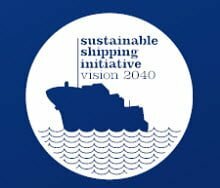 Specialty chemicals producer AkzoNobel and Taiwan marine shipper U-Ming Marine Transport Corporation have joined the Sustainable Shipping Initiative, a global coalition of companies that pledge to improve the industry's environmental impacts through a broad range of goals, including reducing greenhouse gas emissions.
Specialty chemicals producer AkzoNobel and Taiwan marine shipper U-Ming Marine Transport Corporation have joined the Sustainable Shipping Initiative, a global coalition of companies that pledge to improve the industry's environmental impacts through a broad range of goals, including reducing greenhouse gas emissions.
The Sustainable Shipping Initiative is managed by non-profit Forum for the Future in conjunction with the World Wildlife Fund. The additions brings the number of member companies to 20, including such major names as Maersk Line, Cargill, DNV, Unilever and Wärtsilä. Members represent a variety of interests including ship owners, shipbuilders, engineers and service providers, such as banks and insurance companies.
In 2011, SSI members signed Vision for 2040, an outline of how the industry needs to respond to global challenges, and a set of goals to meet those challenges.
Vision for 2040 includes a broad number of action plans for the shipping industry, such as adopting labor standards, actively seeking renewable and other energy sources to reduce greenhouse gas emission intensity, and finding ways to put a financial value on ecosystems goods and services. However, the plan doesn't provide specific reduction targets.
Four initial SSI "workstreams" run by member companies are currently underway, addressing energy technologies, finance for sustainable ship building, ship materials and sustainability ratings and standards.
That last group will review existing standards and pull together a framework, with input from various stakeholders in the industry, for what a new standard should look like. The group ultimately wants to produce a framework for a global "beyond-compliance" standard to drive improved sustainability performance.
The workstream will run throughout most of the year and results will be announced at an international press conference in September.
In October, SSI member company Cargill, a major charterer of dry-bulk ships, as well as Hunstman Corp., and Unipec, a unit of China’s biggest oil trader, announced they would no longer use the most fuel-inefficient vessels.